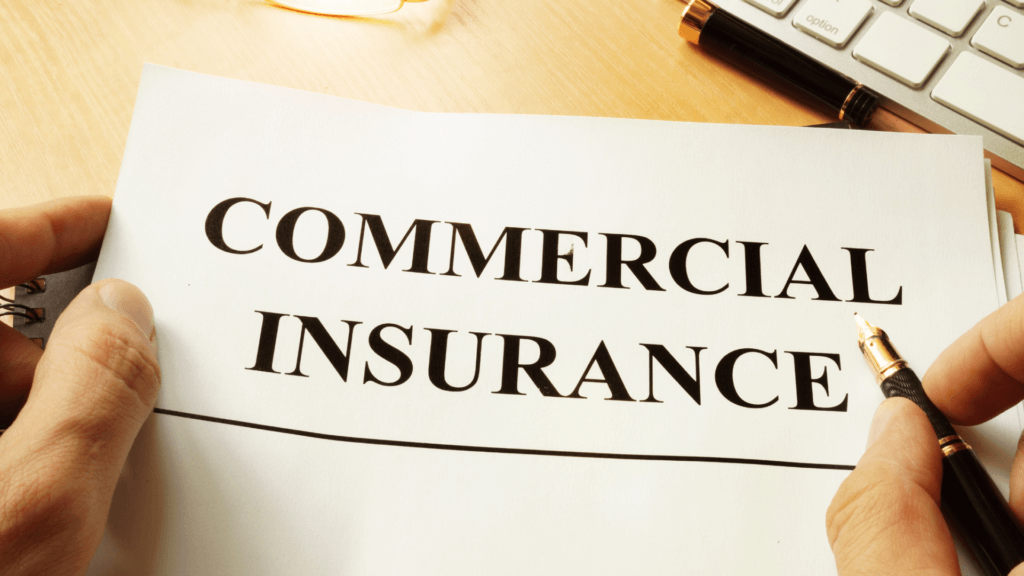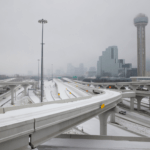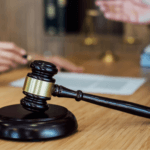
Obtaining insurance coverage is one of the most important aspects of starting a business. In fact, having the proper insurance coverage in place is necessary before even purchasing any equipment or inventory. While commercial property insurance coverage can help protect a business from physical property damage due to an unforeseen event or natural disaster, certain specific claims can be excluded from coverage, which is important to consider.
Commercial Property Insurance
Business property is among the biggest investments for company owners, making it incredibly important to protect against inevitable natural disaster events and/or instances of vandalism. Commercial property insurance is used to cover these and other events that can greatly damage a business both physically and financially. Because of this, businesses of all kinds – including manufacturers, retailers, service-oriented businesses, non-profit organizations, and other brick-and-mortar operations – must carry commercial property insurance.
Commercial property policies are generally bundled together with other forms of insurance, like general liability or business interruption coverage. These policies often work together to help pay for income lost if the business is unable to operate at full capacity after a covered event.
Claims Covered by Commercial Property Insurance
Coverage under a commercial property policy extends to the business’s location or office, its equipment, tools, inventory, supplies, computers, furniture, valuable documents, and business records. It also covers outdoor items the business owns as well, such as fences and signage. Damaged property located inside of the business facility that belongs to clients or employees is also generally covered under a commercial property policy.
When purchasing commercial property insurance, business owners should determine whether or not the policy covers “named perils” or “open perils.” A named perils policy will cover the costs of damage from instances explicitly listed in the policy. These perils include events like fire, theft, vandalism, and wind damage. On the other hand, an open perils policy can provide give business owners with broader protection. These commercial policies will cover any physical damage the business faces except for events listed as exclusions.
Often, commercial property insurance will provide coverage to business owners that have suffered physical damage from the following events:
- Fire
- Lightning strikes
- Tornado damage
- Theft/vandalism
- Water damage
- Severe weather
Claims Not Covered by Commercial Property Insurance
Despite all the events commercial property insurance can cover, business owners need to remember that it is not a catchall policy for any type of damage or calamity a business may face. Just like any other insurance coverage, commercial property policies are very specific when it comes to which events are covered and which are uncovered. Unfortunately, deciphering coverage under these policies can be incredibly difficult for property owners who may not understand the incredibly nuanced language used in their insurance policies. This often leaves business owners in the dark when it comes to what is excluded from coverage.
Understanding the extent of coverage puts business owners at an advantage when they need to file a claim or if they are considering purchasing additional coverage. Some of the most common types of claims not covered by commercial property insurance include:
Damage Caused by Maintenance Issues
Ensuring the business property is well maintained can keep owners from having to pay for costly repairs that are likely not covered under a commercial policy. Any damage to the property that occurs due to a lack of proper maintenance will generally not be covered. Termites and insect damage, bird or rodent damage, rust, rot, mold, and general wear and tear are all typically not covered under a commercial property policy. Additionally, damage caused by smog or smoke from industrial or agricultural equipment may also not be covered.
Intentional Property Damage
Commercial property insurance may not cover instances of business property that were done intentionally. While this may seem like a far-fetched situation, intentional damage can occur for several reasons. For one, if a disgruntled employee intentionally damages a building by breaking a window or other items owned by the business, this damage would not be covered.
Commercial Auto Damage
While commercial property policies cover damage to the premises of the business and its interior, they may not cover damage to company-owned vehicles. Coverage for commercial vehicle damage would come via a commercial auto policy. This specific coverage includes liability and property damage protection for cars, trucks, and vans used for the business. This coverage can also extend to food trucks, service utility trucks, trailers, and other types of vehicles owned by the covered business.
Earthquake or Earth Movement Damage
Most commercial policies exclude coverage for property damage caused by earth movement events such as earthquakes, sinkholes, and mudflows. However, if the business is located in an area where these events are common, coverage can be obtained by purchasing an earthquake or earth movement policy extension or rider.
Flood Damage
While commercial property policies do generally cover water damage, they generally exclude coverage for flood events. This can be confusing for policyholders that may assume water damage includes flood damage; however, flood damage can be much more costly and labor-intensive to resolve. Because of this, for policyholders to ensure their property is fully protected against flooding damage, they should purchase a separate flood policy. This is especially true for commercial properties located along coastal areas, as they are more likely to encounter a flood or hurricane-related damage.
Wind and Hail Damage
If a business is located along the Gulf Coast, a commercial property policy will likely not cover property damage resulting from wind and hail. These areas are incredibly prone to wind-related damage from hurricanes, however, making it imperative to purchase independent windstorm insurance.
Liability Claims
Business owners and their employees are likely to make a mistake at some point during the company’s time in operation. Unfortunately, sometimes these mistakes can lead to a disgruntled customer or a client taking legal action against the company. When these events happen, business owners should have a separate liability policy in place. These policies protect the business and its owner from financial loss due to a professional’s mistake or from a loss related to a slip and fall on company property. Liability policies business owners can purchase include general liability, professional liability, and premises liability policies.
Business Interruption
Although often used in tandem with commercial property insurance, business interruption or the temporary closure of a business due to property damage can only be covered under a business interruption policy. These policies can help business owners cover certain expenses the company will continue to incur while it is temporarily inoperable due to physical damage. These expenses include rent payments, payroll, lost revenue, relocation, and loan assistance.
Commercial Insurance Claim Attorneys
Ensuring your livelihood is protected by insurance is one of the most crucial aspects of owning a business. Unfortunately, even with all the proper coverage in place, insurance companies can still choose to take advantage of their policyholders by grossly underpaying a claim, delaying payment of a claim, or flat-out denying a claim.
At Raizner Slania, our commercial insurance claim attorneys are well-versed in the multitude of ways insurance companies attempt to skew the claims process for their benefit. If you are a commercial property owner needing assistance with commercial policy coverage or with a wrongfully delayed, underpaid, or denied property damage claim, we can help.


